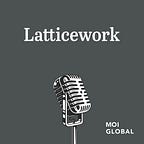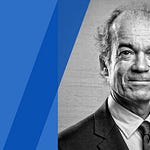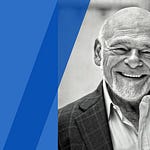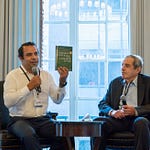This recording is part of our series, Intelligent Investing 100.
We continue this series with a program on the philosophy, strategy, and tactics of Carl Icahn — narrated by John Mihaljevic, chairman of MOI Global.
Icahn is somewhat of a Wall Street legend. His track record over more than four decades was astounding: from 1968 through 2011, Icahn compounded capital at roughly 31% annually, handily outperforming the broader market (~7%). While reliable data on his more recent performance is elusive, it has been mixed at best, weighed down heavily by a collapse in the share price of Icahn Enterprises (IEP).
How did Icahn achieve outsized gains over 40+ years? By doing what few others dared. He built his fortune not just by picking stocks, but by forcing companies to unlock value, often through bruising battles that earned him the label “corporate raider.” Yet in later years, even skeptics might admit, when Icahn targets a company, its shareholders often reap major rewards. The market even has a term for this effect (the “Icahn Lift”), reflecting the typical stock jump when his stake becomes public.
Icahn’s career also helped pioneer modern shareholder activism. In the 1980s he showed that even corporate giants could be shaken up by a determined investor. The playbook he developed — targeting undervalued companies and agitating for change — has since gone mainstream, copied by a generation of activist managers.
Strategically, Icahn blends classic value investing with a contrarian, interventionist twist. He believes the consensus is usually wrong and hunts for opportunities in unloved sectors where others see only risk. But unlike many value investors, he doesn’t wait for the market to correct mispricing: he takes matters into his own hands. Icahn invests like an owner, not a trader, viewing a stock as a piece of a business that he can influence. If assets are mismanaged or strategy is flawed, he pushes for changes to unlock value. This activist mindset, combined with an ability to assess a company’s true worth, is core to his success. He also has the conviction to make big, concentrated bets, and the toughness to see fights through. Icahn relishes conflict when necessary: he once joked that “in the takeover business, if you want a friend, buy a dog”.
In this program, John Mihaljevic chronicles Carl Icahn’s journey from humble beginnings to his status as a Wall Street icon. Here is a brief overview of the topics covered:
Early Life and Wall Street Beginnings: Icahn’s upbringing in Queens and unlikely path (including a philosophy degree from Princeton) into finance, with early experiences like the 1962 market crash shaping his “no-brainer” approach to risk.
Building an Empire and Track Record: How Icahn founded his own firm in 1968 and amassed a fortune through arbitrage, then went on to compile decades of market-beating returns — including the “Icahn Lift” effect that often boosts stocks when his stake is revealed.
Contrarian Strategy and Owner’s Mindset: The principles behind Icahn’s success, from finding undervalued situations to using bold tactics (proxy fights, hostile bids, public campaigns) to catalyze change.
The 1980s – Raider Era and the TWA Saga: Icahn’s aggressive 1980s takeover campaigns that made him infamous. We revisit his defining raid on TWA in 1985, where he seized control of a major airline and reaped a huge profit by selling off assets, while leaving TWA buried in debt, a controversial outcome that cemented his “corporate raider” image.
The 1990s – Strategic Stakes and Rebranding: Icahn’s high-profile plays in the 90s, from pushing for a breakup of RJR Nabisco to a battle over Marvel Comics, and how he recast himself from raider to more of a shareholder advocate.
The 2000s – Hedge Fund Activism Comes of Age: Icahn’s resurgence with campaigns against corporate giants. Notable fights include Time Warner (where, despite losing a proxy vote, his campaign forced the company to enact much of his agenda) and Yahoo (where he intervened to push for major changes).
The 2010s – Iconic Wins and Rivalries: We explore Icahn’s contrarian bet on Netflix (made during its darkest days, netting nearly $2 billion in profit), his campaign at Apple (urging massive buybacks to unlock value), and the infamous Herbalife showdown with Bill Ackman — a very public billionaire grudge match that Icahn ultimately won.
The 2020s – A Restless Billionaire’s Latest Moves: Even in his late 80s, Icahn isn’t done fighting. We cover his recent moves: from an unusual 2022 crusade over animal welfare at McDonald’s to a 2023 short-seller attack on Icahn’s own company, underscoring his enduring role as a tireless “owner advocate” and the legacy he continues to build.
We hope that in this program you’ll gain a deeper understanding of how Icahn thinks and operates. Rather than simply recount history, we use these case studies to extract insights: how Icahn spots value where others miss it, the tactics he uses to bend companies to his will, and the lessons investors can learn from his triumphs and setbacks.
Featured Events
Latticework 2025, The Yale Club of New York City (Oct. 7)
Ideaweek 2026, St. Moritz, Switzerland (Jan. 26-29, 2026)
Best Ideas Omaha 2026, Omaha, Nebraska (May 1, 2026)
The Zurich Project 2026, Zurich, Switzerland (Jun. 2-4, 2026)
Enjoying Latticework? Help us make it even more special.
Share Latticework (simply click the above button!)
Introduce us to a thoughtful speaker or podcast guest
Be considered for an interview or idea presentation
Volunteer to host a small group dinner in your city
Become a sponsor of Latticework / MOI Global
Volunteer by reaching out directly to John (john@moiglobal.com).












